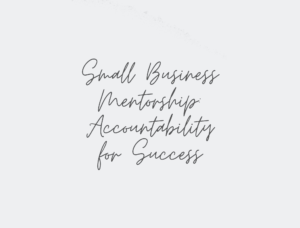Introduction
Knowing how to progress a career is crucial in the fast-paced, ever-changing workplace. Promotions and advancing up the corporate ladder are not the only types of career growth. They also involve horizontal, diagonal, and exterior level changes. This look at the different methods to advance in your employment will empower people to make informed career decisions.
Traditional Career Growth Paths
Vertical Growth:
People often use the phrase “climbing the corporate ladder” to talk about this tried-and-true way to get ahead at work. It means moving up from a lower position to a better one, which usually means more work, money, and benefits.
Horizontal Growth:
Growth doesn’t have to be linear. Horizontal growth occurs when someone stays the same but acquires skills and experience. Usually, this implies changing jobs or departments. People can learn about the organization and develop their abilities.
Diagonal Growth:
People can advance in the firm and switch departments or fields. It combines vertical and horizontal expansion.
External Growth:
Sometimes, growth opportunities are outside the company. Growing can mean getting a bigger or different position at a new company or starting your own business.
Personal Growth:
One important part of job development is moving up in the company. Another is growing as a person. You could always get better at what you do, learn new things, take classes to advance your job, or even just meet new people.
Non-Traditional Career Growth Paths
Lateral Shifting:
This is the plan to stay at the same level and move up in the same company or field. Taking this route can help you find new jobs or fields and give you new ideas and tasks.
Project-based Growth:
People who go this route take on tasks or projects that aren’t normally part of their job. A lot of the time, these projects help people get better at their jobs and learn new skills.
Mentorship:
You can do better work if you find a guide or become one. Make new friends, learn new things, and get useful tips and new points of view through this link.
Freelancing or Consulting:
Part of this plan for growth is to use your skills to offer services on your own. It might be scary, but it might also be very fun and give you the chance to work on lots of different projects for lots of other people.
Digital Proficiency:
It can help your job if you know how to use computers and other digital tools well. Learn about and get used to new technologies, digital trends, and useful tools in your field if you want to keep going in this direction.
Educational Avenues for Career Growth
Degree Programs:
By getting a Master’s or Doctorate in a specific area, you can show that you know more and be taken more seriously. This could help you get ahead at work or learn a lot about a new subject.
Professional Certifications:
These things prove that you understand how to do certain things. They can help you get better at your job if you are dedicated to professional growth.
Online Courses:
Digital tools for learning have made it easier to learn new things. You can pick from a lot of different topics in online classes, which can help you move up in your job both up and down and side to side.
Workshops and Seminars:
You can meet other workers and learn from people who are good at what they do. By going to classes and seminars, you can get better at what you do and meet more people in the business world.
Internships and Job Shadowing:
These help you learn how to do different jobs and see how other businesses work in the real world. They can help you move up at work or get a new job in a different area.
Networking Strategies for Career Growth
Professional Networking Events:
You can meet other workers in the same field and make useful connections by going to conferences, seminars, and meet-ups in your field.
Online Networking:
LinkedIn, Twitter, and online forums for your job let you connect with professionals all over the world. By regularly talking to people and sharing your thoughts on these sites, you can make new friends and expand your business network.
Building Relationships:
Networking isn’t just about meeting new people; it’s also about making and keeping connections. To create long-lasting ties, you should stay in touch, help others out when you can, and truly want them to succeed.
Personal Branding:
You can show off your unique skills and knowledge and stand out from other people in the same field by making a personal brand. On social media, in your writing or public, show that you are an expert in your area.
Mentorship Programs:
You can get useful knowledge, help, and new ways to grow by volunteering for mentorship programs at work or in your field.
Skill Diversification for Career Growth
Cross-Functional Training:
This means getting to know other parts of a company or business besides your job. You can be a more useful and adaptable worker if you learn how to do more things.
Learning New Technologies:
In a world that is becoming more and more digital, knowing how to use the newest tools and tech can help you get ahead. You should learn anything from how to code to how to use data analysis tools well.
Soft Skills Development:
Tech skills are important, but soft skills are even more so. You can improve your job prospects by learning how to talk to people, lead others, and fix problems.
Language Learning:
It can be very helpful to be able to talk to people in more than one language, especially in global businesses or jobs where people from different countries need to work together.
Entrepreneurial Skills:
You don’t have to start your own business to be an entrepreneur. If you’re creative, willing to take chances, and good with money, you can use these skills in many jobs.
Entrepreneurial Ventures for Career Growth
Starting Your Own Business:
This is the easiest way to start a business. You and other people will have jobs when you turn an original idea into a great company. This is good for the economy.
Franchising:
You can use the name of a well-known business when you buy a license. You can be an entrepreneur with less risk if you go this route. This is because you will use a business plan that has already worked.
Social Entrepreneurship:
The goal of this project is to start a business that will help solve social problems or make social changes. You can make a change with both a strong desire to help and good business sense.
E-commerce:
It can be a good way to make money to open an online store now that technology is getting better. To do this, you can sell things or services online, either on your site or on a well-known one.
Consulting or Freelancing:
If you know a lot about a certain subject, you could work as a consultant or freelancer and start your own business. You can work on different projects and have more freedom because of this.
Leadership Development for Career Growth
Personal Assessment:
Figure out your strengths, weaknesses, and style of leading as a first step toward becoming a better leader. When you think about yourself and get feedback from peers or bosses, you can learn a lot about your leadership skills.
Leadership Training Programs:
Taking lessons or workshops on leadership can help you learn and get better at skills like strategic planning, making decisions, and managing a team.
Mentorship:
The best way to learn how to be a good leader is to find a teacher who is one. Mentors can help you grow as a leader by giving you feedback, direction, and tips.
Practical Experience:
Taking on leadership roles at work or through volunteer work is a great way to use what you’ve learned about leadership and get better at it.
Continual Learning:
Leaders develop, not achieve. As a leader, staying current on leadership concepts, tactics, and skills can help you adapt. Leadership can be learned from books, workshops, and podcasts.
Diversity and Inclusion for Career Growth
Awareness and Understanding:
Building a diverse and inviting space requires learning about different countries, backgrounds, and perspectives. You can accomplish this by training, attending diversity events, or discussing diversity and inclusion.
Inclusive Leadership:
Leaders are crucial to diversity and inclusion. They should encourage team members to challenge prejudices and push new ideas.
Empathy and Respect:
When we have empathy, we can see things from other people’s points of view and understand why they care about them. It helps everyone feel like they belong and are heard in the room.
Policies and Practices:
There should be rules and processes in place for diversity and inclusion at work. This could include fairways to hire people, relaxed work hours, or employee resource groups that help hire people from all walks of life.
Measurement and Accountability:
It’s important to keep track of how efforts to be friendlier and more open are going. People will be more open to others if they are held accountable for their actions and diversity metrics are measured on a regular basis.
International Opportunities for Career Growth
Working Abroad:
A lot of people find it helpful to work in other countries. You can learn about new business practices, cultures, and work environments, which makes you a better worker and gives you a bigger picture of the world.
Networking:
Getting to know businesspeople from other countries can open up new opportunities. Be a part of foreign conferences, seminars, or virtual meet-ups to meet more people in your area.
Cultural Competency:
It’s important to learn and accept other cultures in this globalized world. In particular, if your job requires you to work with people from different countries, learning about their cultures can help you talk to and work with them better.
Learning Foreign Languages:
It can be very helpful to be able to speak a foreign language well, especially in businesses or groups that work with people from all over the world. It helps people talk to each other and can lead to work as a mediator, translator, or interpreter.
International Certifications or Training:
Getting a job can help one get training or qualifications that are known all over the world. By making you stand out, they can help you get hired anywhere in the world.
Tech-Driven Growth for Career Growth
Embracing Technology:
You can move up in your job by staying up to date on the latest tech trends and using them at work.
Tech-Based Training:
Coding, data analysis, and digital marketing are all tech skills that can help you change careers or get ahead in the job market.
Networking and Social Media:
You can grow your professional network by using professional social networks like LinkedIn or groups for your field. This can help you get jobs and form partnerships.
Remote Work Skills:
More and more people work from home, so learning how to use different digital tools for effective teamwork from home can help you get a job and give you more freedom.
Continuous Learning:
People need to keep learning because tech changes so fast. Taking online classes, webinars, or learning on your own are all good ways to keep your tech skills up-to-date and useful in your field.
Actionable Tips for Career Advancement
There are many ways to move up at work. Here are some steps you can take to get ahead, no matter which way you choose.
Make continuous learning a priority:
Getting professional classes, certifications, or advanced degrees can help you stand out by giving you the information you need. Always know about new tools, ways to get better, and changes in the business.
Build a strong professional network:
If you go to events in your field, join online groups, or meet people for coffee, you can make links that are both personally satisfying and useful for finding jobs. Don’t forget that a friend or family member could hire you.
Show initiative at work:
Take on hard projects and offer to help with other tasks to show that you are committed and able to handle more responsibility. This proves you can do a more important job, gets you ready for future careers, and lets those in charge know you’re ready for more.
Seek feedback and continuously improve:
A big part of job growth is being able to take feedback and use it. Whether someone tells you something nice or something that you could do better, use it to improve your skills and work attitude.
Plan your career path:
What does it mean to do well at work, and how can you do it? Making plans for when to meet your goals and being open to change when the chance comes up are some ways to do this.
Even though these tips look easy, you have to work hard and keep at it to use them. They also work for everyone, whether you want to move up in your job or down, start your own business, or be more independent.
Conclusion
To succeed in the workplace, you must understand career growth styles. Whether you want to advance your career traditionally, move laterally to obtain new experiences, become an entrepreneur, or work for yourself, you must maintain learning, network well, take the initiative, be receptive to feedback, and plan carefully. Follow these rules to create a meaningful and successful career.





